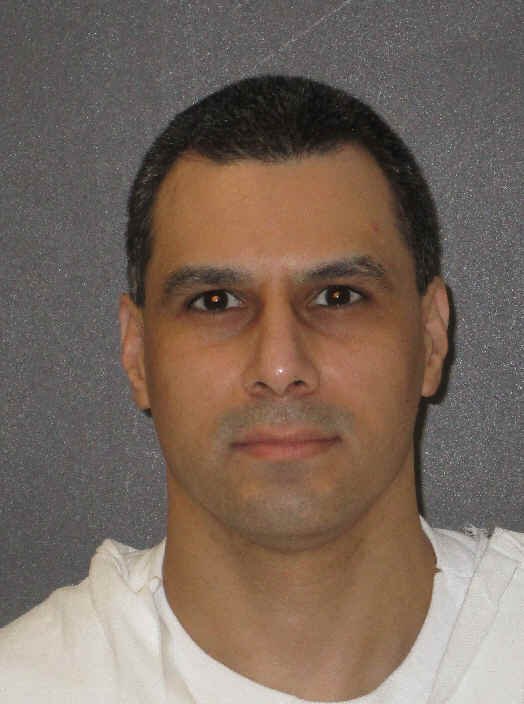Ruben Gutierrez was convicted of murder for the 1998 slaying of trailer park owner Escolastica Harrison. File Photo courtesy of the Texas Department of Corrections
June 16 (UPI) -- The U.S. Supreme Court on Tuesday issued a last-minute stay of execution for a death row inmate challenging Texas' policy preventing clergy from entering the death chamber.
The order came about an hour before Ruben Gutierrez, 42, was scheduled to receive a lethal injection at the Texas State Penitentiary at Huntsville. He was convicted of the 1998 murder of trailer park owner Escolastica Harrison.
His lawyers and and a group of Catholic leaders had asked Texas Gov. Greg Abbott and the U.S. Supreme Court to intervene and give him a 30-day reprieve. Gutierrez has long sought additional DNA testing to prove his innocence and is challenging Texas' new policy preventing spiritual advisers from entering the death chamber.
"As a devout Catholic, Mr. Gutierrez's faith requires the assistance of clergy to help him pass from life into afterlife," his lawyer, Shawn Nolan, said in response to the high court's order. "The Texas Department of Criminal Justice changed its policy for its own convenience, but spiritual comfort at the time of death is not a convenience; it's a protected legal right."
A federal judge granted him a stay of execution June 9, but the 5th U.S. Circuit Court of Appeals vacated the ruling Friday.
The Texas Catholic Conference of Bishops has filed an amicus brief that supports Gutierrez's petition to have a Catholic chaplain accompany him into the execution chamber.
Texas banned all chaplains of any religion from entering the state's execution chambers in April 2019 after the U.S. Supreme Court stayed the execution of an inmate who was prevented from having a Buddhist spiritual adviser with him.
Under the new protocols, TDCJ chaplains will be available to the inmates until they are transferred to the execution chamber. Ministers and spiritual advisers also may observe executions from the witness rooms.
Texas Attorney General Ken Paxton said the change in protocol didn't impose a substantial burden on Gutierrez's religious exercise because he'll be allowed to interact with a chaplain in the day leading up to his execution.
Gutierrez also has sought the testing of nail scrapings and loose hairs taken from the victim, a shirt belonging to a family member of Harrison and other clothing items. He says the testing would prove his innocence.
"Mr. Gutierrez's case is also gravely concerning because of the urgent need to test the DNA evidence in his case. For years, Mr. Gutierrez has sought such testing in order to prove he did not commit the crime for which he was sentenced to death. The state has fought such testing at every turn, but surely the public interest would be best served by allowing DNA testing while the Court considers Mr. Gutierrez's case, in order to prevent a wrongful execution in the future," Nolan said.
Authorities said Gutierrez knew Harrison through her nephew and worked together with accomplices Pedro Garcia and Rene Garcia to rob her of about $600,000 in cash she had stashed in her home. An autopsy showed Harrison had been beaten and stabbed 13 times with two different screwdrivers.
Gutierrez said he helped organized the robbery, but didn't take part in the murder and DNA testing would absolve him.
Texas hasn't carried out any executions since the beginning of the COVID-19 pandemic. The state has delayed or rescheduled six other executions.














